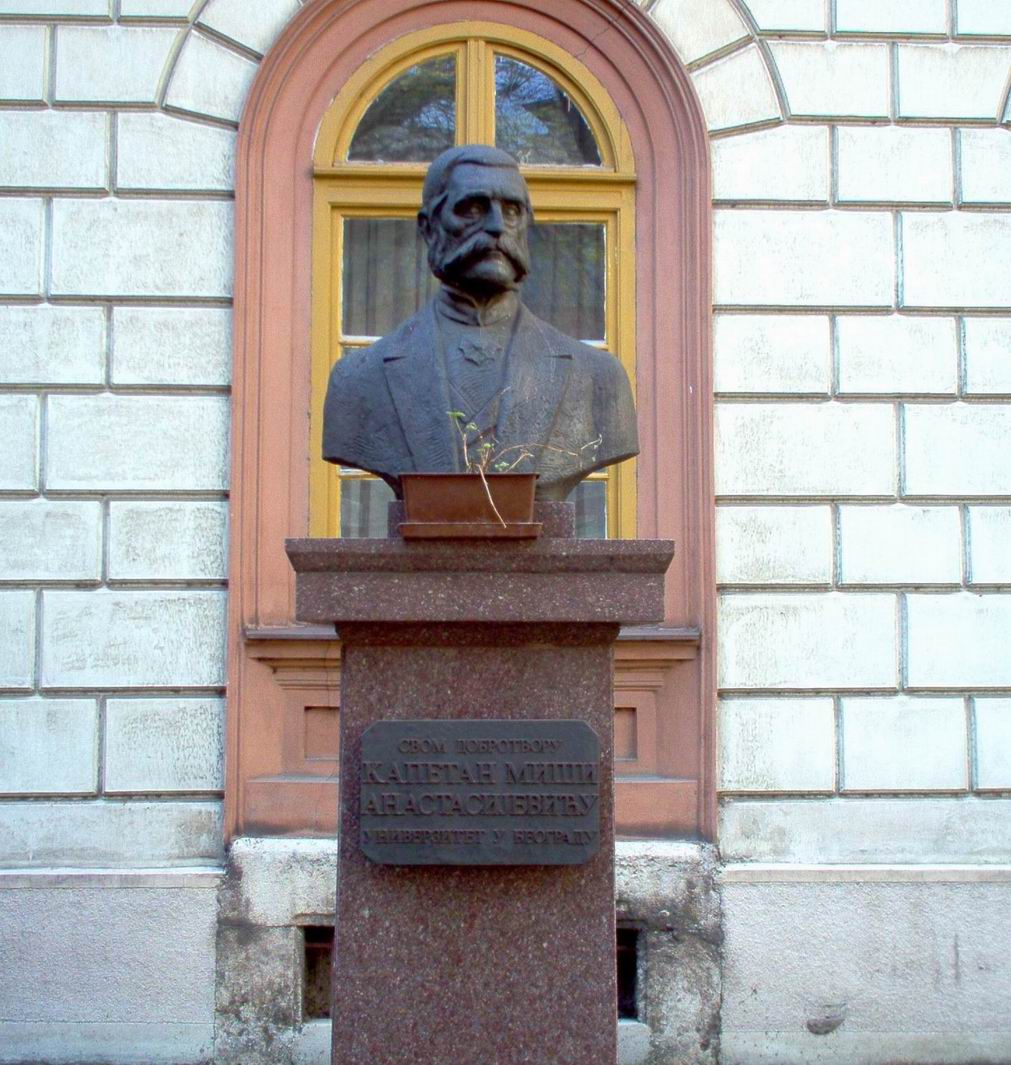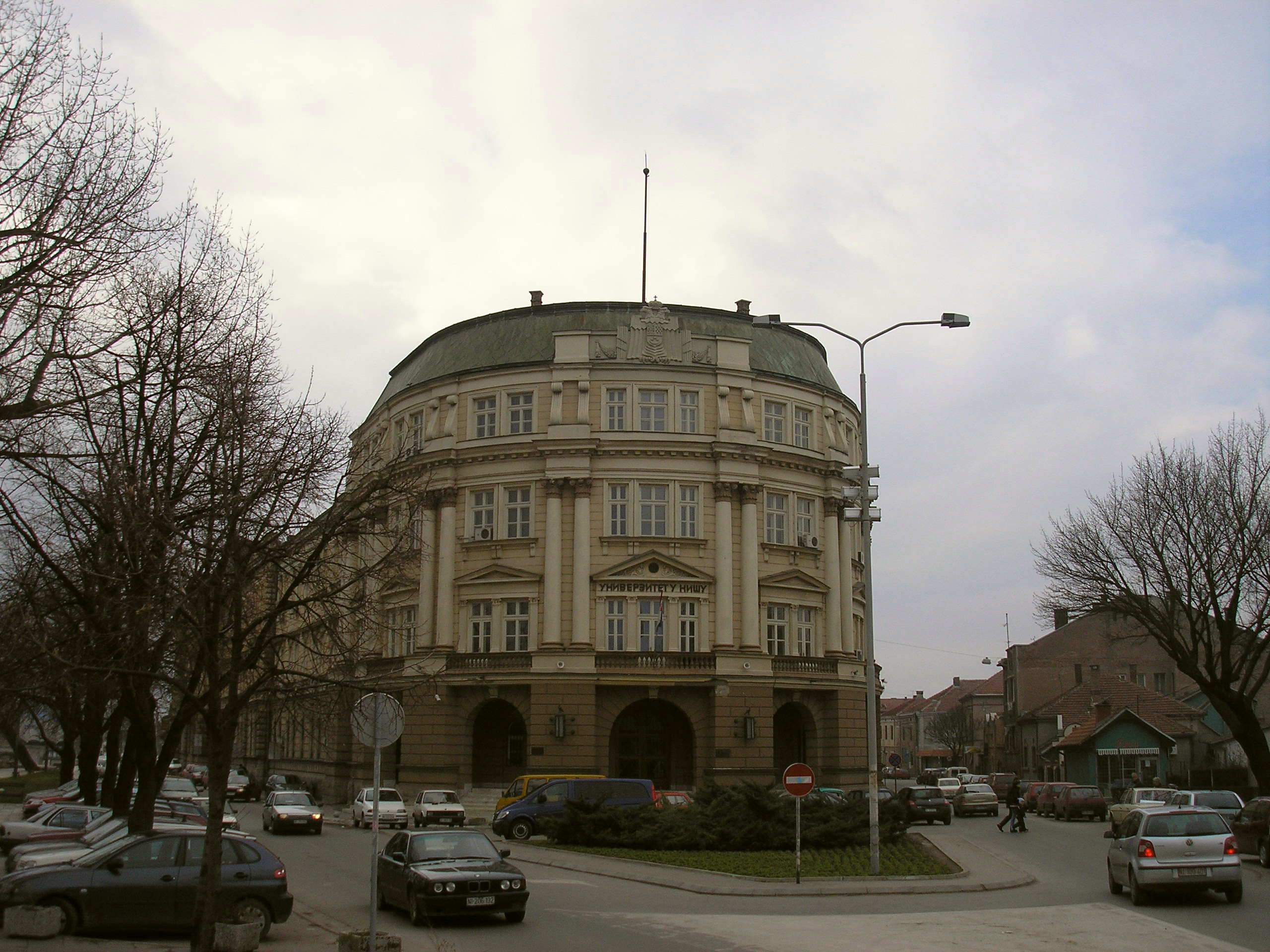|
Donji Milanovac
Donji Milanovac ( sr-cyrl, Доњи Милановац, ) is a town in eastern Serbia. It is situated in the Majdanpek municipality, in the Bor District. It is located on the right bank of Lake Đerdap on the Danube. The population of the town is 2,410 people (2011 census). Its name means "Lower Milanovac" (there is an Upper Milanovac, as well). The management office of Đerdap national park is located in the town. It has been nicknamed a "town of 100,000 roses". Geography The town is located on the right bank of Lake Đerdap on the Danube, and is located in the Đerdap national park. The Miroč mountain lies between Donji Milanovac and Tekija and further to the south are the Kučaj mountains. The Miroč is known for the abundance of the medicinal herbs while the area surrounding the town is covered in lush deciduous forests. Via Danube, Donji Milanovac is away from Belgrade. It is situated in the ''Veliki Kazan'' gorge, a section of the composite Iron Gate gorge. At Don ... [...More Info...] [...Related Items...] OR: [Wikipedia] [Google] [Baidu] |
Municipalities And Cities Of Serbia
The municipalities and cities ( sr, општине и градови, opštine i gradovi) are the second level administrative subdivisions of Serbia. The country is divided into 145 municipalities ( sr-Latn, opštine, singular: ; 38 in Southern and Eastern Serbia, 42 in Šumadija and Western Serbia, 37 in Vojvodina and 28 in Kosovo and Metohija) and 29 cities (Serbian Latin: , singular: ; 9 in Southern and Eastern Serbia, 10 in Šumadija and Western Serbia, 8 in Vojvodina and one in Kosovo and Metohija), forming the basic level of local government. Municipalities and cities are the administrative units of Serbia, and they form 29 districts in groups, except the City of Belgrade which is not part of any district. A city may and may not be divided into city municipalities ( sr-Latn, gradske opštine, singular: ) depending on their size. Currently, there are six cities in Serbia with ''city municipalities'': Belgrade, Novi Sad, Niš, Požarevac, Užice and Vranje comprise several ... [...More Info...] [...Related Items...] OR: [Wikipedia] [Google] [Baidu] |
Beluga (sturgeon)
The beluga (), also known as the beluga sturgeon or great sturgeon (''Huso huso''), is a species of anadromous fish in the sturgeon family ( Acipenseridae) of order Acipenseriformes. It is found primarily in the Caspian and Black Sea basins, and formerly in the Adriatic Sea. Based on maximum size, it is the third-most-massive living species of bony fish.Huso huso. Fishbase.org. Accessed on 11 January 2008 Heavily fished for the female's valuable , known as , wild populations have been greatly reduced by [...More Info...] [...Related Items...] OR: [Wikipedia] [Google] [Baidu] |
Balkan Wars
The Balkan Wars refers to a series of two conflicts that took place in the Balkan States in 1912 and 1913. In the First Balkan War, the four Balkan States of Greece, Serbia, Montenegro and Bulgaria declared war upon the Ottoman Empire and defeated it, in the process stripping the Ottomans of its European provinces, leaving only Eastern Thrace under the Ottoman Empire's control. In the Second Balkan War, Bulgaria fought against the other four original combatants of the first war. It also faced an attack from Romania from the north. The Ottoman Empire lost the bulk of its territory in Europe. Although not involved as a combatant, Austria-Hungary became relatively weaker as a much enlarged Serbia pushed for union of the South Slavic peoples. The war set the stage for the Balkan crisis of 1914 and thus served as a "prelude to the First World War". By the early 20th century, Bulgaria, Greece, Montenegro and Serbia had achieved independence from the Ottoman Empire, but large eleme ... [...More Info...] [...Related Items...] OR: [Wikipedia] [Google] [Baidu] |
Captain Miša's Konak
Captain is a title, an appellative for the commanding officer of a military unit; the supreme leader of a navy ship, merchant ship, aeroplane, spacecraft, or other vessel; or the commander of a port, fire or police department, election precinct, etc. In militaries, the captain is typically at the level of an officer commanding a company or battalion of infantry, a ship, or a battery of artillery, or another distinct unit. The term also may be used as an informal or honorary title for persons in similar commanding roles. Etymology The term "captain" derives from (, , or 'the topmost'), which was used as title for a senior Byzantine military rank and office. The word was Latinized as capetanus/catepan, and its meaning seems to have merged with that of the late Latin "capitaneus" (which derives from the classical Latin word "caput", meaning head). This hybridized term gave rise to the English language term captain and its equivalents in other languages (, , , , , , , , , kapitány, K ... [...More Info...] [...Related Items...] OR: [Wikipedia] [Google] [Baidu] |
Miša Anastasijević
Mihailo "Miša" Anastasijević ( sr-cyr, Миша Анастасијевић; February 24, 1803 – January 27, 1885) was a businessman and the second richest man in Serbia in the 19th century, through his successful salt export from Wallachia and Moldavia and business partnership with Miloš Obrenović I, Prince of Serbia. He was also the ''Captain of Danube'', and acquired significant benefits from Prince Miloš. Anastasijević was the first public benefactor in Serbia and organizer of various balls for the Belgrade bourgeoisie. He was also a philanthropist. Life Anastasijević was born in Poreč, modern Donji Milanovac, Serbia in 1803. His father, Anastas, was a landowner and petty businessman. His mother, Ruža, was a homemaker. His father died when he was only two years old, while his mother died as a result of complications during childbirth, leaving his stepmother Milja in charge of him. Miša and Milja twice crossed the Danube into Austria during the First Serbian Uprisi ... [...More Info...] [...Related Items...] OR: [Wikipedia] [Google] [Baidu] |
Đerdap I
The Iron Gate I Hydroelectric Power Station ( ro, Porțile de Fier I, sr, Ђердап I/Đerdap I) is the largest dam on the Danube river and one of the largest hydro power plants in Europe. It is located on the Iron Gate gorge, between Romania and Serbia. The Romanian side of the power station produces approximately annually, while the Serbian side of the power station produces . The discrepancy in power output between the two halves is due to the generating equipment. While Romania's equipment is newer and thus more efficient (thereby generating more power), it is proving more unreliable; resulting in increased downtime for maintenance/repairs, and consequently lower annual power output overall. History The project started in 1964 as a joint-venture between the governments of Romania and Yugoslavia for the construction of a major dam on the Danube River which would serve both countries. At the time of completion in 1972, it was the 10th largest hydroelectric power stations ... [...More Info...] [...Related Items...] OR: [Wikipedia] [Google] [Baidu] |
Kingdom Of Yugoslavia
The Kingdom of Yugoslavia ( sh-Latn-Cyrl, separator=" / ", Kraljevina Jugoslavija, Краљевина Југославија; sl, Kraljevina Jugoslavija) was a state in Southeast Europe, Southeast and Central Europe that existed from 1918 until 1941. From 1918 to 1929, it was officially called the Kingdom of Serbs, Croats and Slovenes ( sh-Latn-Cyrl, separator=" / ", Kraljevina Srba, Hrvata i Slovenaca, Краљевина Срба, Хрвата и Словенаца; sl, Kraljevina Srbov, Hrvatov in Slovencev), but the term "Yugoslavia" (literally "Land of South Slavs") was its colloquial name due to its origins."Kraljevina Jugoslavija! Novi naziv naše države. No, mi smo itak med seboj vedno dejali Jugoslavija, četudi je bilo na vseh uradnih listih Kraljevina Srbov, Hrvatov in Slovencev. In tudi drugi narodi, kakor Nemci in Francozi, so pisali že prej v svojih listih mnogo o Jugoslaviji. 3. oktobra, ko je kralj Aleksander podpisal "Zakon o nazivu in razdelitvi kraljevine n ... [...More Info...] [...Related Items...] OR: [Wikipedia] [Google] [Baidu] |
Morava Banovina
The Morava Banovina or Morava Banate ( sh-Cyrl-Latn, separator=" / ", Моравска бановина, Moravska banovina), was a province ( banovina) of the Kingdom of Yugoslavia between 1929 and 1941. This province consisted of parts of present-day Central Serbia (including Vučitrn and Podujevo in Kosovo) and it was named after the Morava Rivers. The capital city of the Morava Banovina was Niš. Borders According to the 1931 Constitution of the Kingdom of Yugoslavia, :''The Morava Banovina is bounded on the north and the east by the State frontiers with Romania and Bulgaria as for as the southern boundary of the district of Lužnica (at Descani Kladenac). From this point the boundary of the Banovina follows the southern boundaries of the districts of Lužnica, Niš, Dobrić, Prokuplje, Kosanica, Lab and Vučitrn, including all these districts, and at the intersection of the boundaries of the three districts of Vučitrn, Gračanica and Drenica it joins the boundary of ... [...More Info...] [...Related Items...] OR: [Wikipedia] [Google] [Baidu] |
Nahiyah
A nāḥiyah ( ar, , plural ''nawāḥī'' ), also nahiya or nahia, is a regional or local type of administrative division that usually consists of a number of villages or sometimes smaller towns. In Tajikistan, it is a second-level division while in Syria, Iraq, Lebanon, Jordan, Xinjiang, and the former Ottoman Empire, where it was also called a '' bucak'', it is a third-level or lower division. It can constitute a division of a ''qadaa'', ''mintaqah'' or other such district-type of division and is sometimes translated as " subdistrict". Ottoman Empire The nahiye ( ota, ناحیه) was an administrative territorial entity of the Ottoman Empire, smaller than a . The head was a (governor) who was appointed by the Pasha. The was a subdivision of a Selçuk Akşin Somel. "Kazâ". ''The A to Z of the Ottoman Empire''. Volume 152 of A to Z Guides. Rowman & Littlefield, 2010. p. 151. and corresponded roughly to a city with its surrounding villages. s, in turn, were divided into ... [...More Info...] [...Related Items...] OR: [Wikipedia] [Google] [Baidu] |
Miloš Obrenović
Miloš, Milos, Miłosz or spelling variations thereof is a masculine given name and a surname. It may refer to: Given name Sportsmen * Miłosz Bernatajtys, Polish rower * Miloš Bogunović, Serbian footballer * Miloš Budaković, Serbian footballer * Miloš Ćuk, Serbian water polo player, Olympic champion * Miloš Dimitrijević, Serbian footballer * Miloš Holuša, Czech race walker * Miloš Jojić, Serbian footballer * Miloš Korolija, Serbian water polo player * Miloš Krasić, Serbian footballer * Miloš Marić, Serbian footballer * Miloš Milošević, Croatian swimmer * Miloš Milutinović, Serbian footballer and manager * Miloš Nikić, Serbian volleyball player * Miloš Ninković, Serbian footballer * Miloš Pavlović (racing driver), Serbian racing driver * Milos Raonic, Montenegrin-born Canadian tennis player * Miloš Stanojević (rower), Serbian rower * Miloš Šestić, Serbian footballer * Miloš Teodosić, Serbian basketball player * Miloš Terzić, Serbian vo ... [...More Info...] [...Related Items...] OR: [Wikipedia] [Google] [Baidu] |




